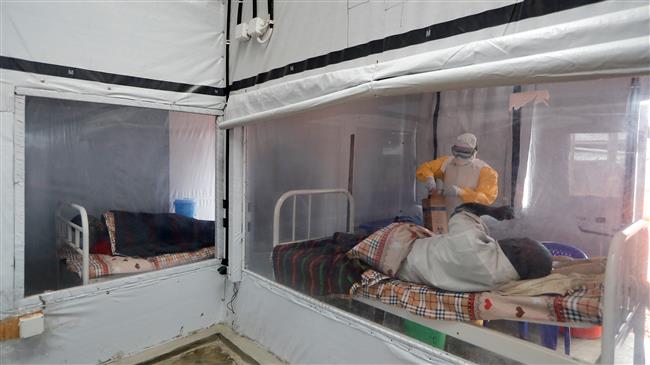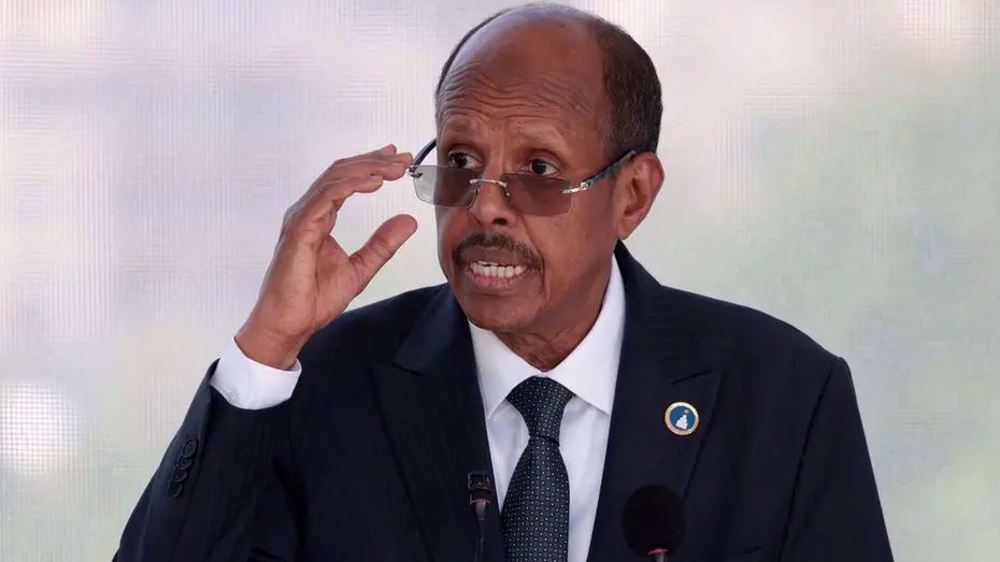First shipment of new Ebola vaccine arrives in DR Congo
The Congolese medical authorities say they have received the first shipment of a new Ebola vaccine as the central African country battles its second deadliest outbreak of the virus this decade.
The health ministry for the eastern province of North Kivu said on Saturday that a preliminary batch of 11,000 doses of the new Ad26-ZEBOV-GP vaccine manufactured by Johnson & Johnson had arrived on Friday.
In all, a shipment of a total 50,000 doses is being sent to the Democratic Republic of the Congo to help fight an outbreak that has killed more than 2,100 people since August 2018.
Until now, the only vaccine against the disease was one manufactured by US firm Merck Sharpe and Dohme.
The DRC's deadliest Ebola outbreak since the West Africa pandemic in 2014-2016 has affected the provinces of North Kivu, South Kivu and Ituri and left 2,183 people dead, according to the latest official figures.
Since the start of the vaccination campaign on August 8, 2018, a total 245,999 people have been vaccinated.
Ebola fighters have been hindered by chronic insecurity in the affected provinces of eastern DRC, but much of the controversy surrounding the response has centered on the use of vaccines.
The World Health Organization (WHO) had been pushing Kinshasa for months to approve the use of the J&J vaccine -- an experimental product-- to protect those living outside of direct transmission zones.
The J&J vaccine had been rejected by DRC's former health minister Oly Ilunga, who cited the risks of introducing a new product in communities where mistrust of Ebola responders is already high.
But Ilunga's resignation in July appeared to have paved the way for the second vaccine.
Read more:
- DR Congo’s worst Ebola outbreak kills over 200: Officials
- WHO says Congo Ebola deaths to surpass 1,000, as new vaccine planned
- WHO: Congo faces 'very high' risk from Ebola outbreak
Jean-Jacques Muyembe, the new head of the anti-Ebola campaign, said Friday the J&J vaccine would be used from mid-November with the operation being launched simultaneously in DR Congo and Rwanda.
The WHO said in August that the latest Ebola outbreak has killed 1,965 people in the Democratic Republic of the Congo.
Michael Ryan, executive director of the WHO Health Emergencies Program, told reporters at a press briefing in Switzerland's Geneva that the situation remains serious, but said he hopes the high number of weekly cases will continue to drop.
(Source: AFP)
Rubio warns US envoys against undermining Trump’s pressure campaign targeting Iran: Report
Iran, Qatar stress continuation of diplomacy towards preserving regional peace, stability
Majority of Americans support Palestinian state as Israel backing declines sharply: Poll
New Israeli strikes kill more Palestinians across Gaza in 'serious violation' of ceasefire
Maliki urges respect for Iraq's sovereignty in meeting with Trump's special envoy
Iran urges restraint, immediate ceasefire as Afghanistan–Pakistan fighting escalates
VIDEO | Press TV's news headlines
VIDEO | Kabul residents call for calm as tensions escalate with Pakistan












 This makes it easy to access the Press TV website
This makes it easy to access the Press TV website